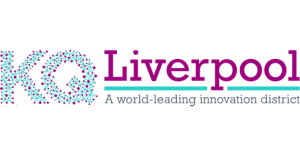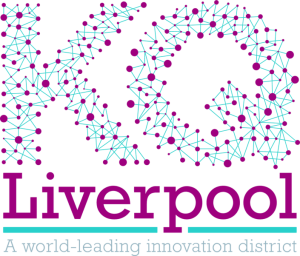- More than 20 diverse events highlighting scale and scope of city region innovation
- Launch event to showcase University of Liverpool’s groundbreaking Life Sciences Innovation Zone projects and more
- Builds on last year’s inaugural Innovation Investment Week
- Includes fourth annual Innovation Investment Summit, major maritime event, and Dragons’ Den style pitching returns
- Other events covering world-leading sports science, inspiring the innovators of tomorrow, design, and space innovation
More than £2bn of investment opportunities are to be showcased at a two-week festival highlighting the breadth, depth and quality of place-based innovation across the Liverpool City Region.
Running from May 12-23, Innovation Investment Fortnight (IIF) will feature at least 20 events covering topics ranging from the city region’s world-leading life sciences innovation to maritime, space, AI and sports science.

The fortnight also includes a Dragons’ Den style pitching event, the fourth annual Innovation Investment Summit for Scaling and three nights of ‘Pint of Science’ in which leading city region academics will speak at pubs across the city region.
Liverpool City Region currently has £1bn of live innovation projects with a further £2bn of projects in the pipeline and seeking investment.
The city region’s Life Sciences Innovation Zone, which launched in April 2024, is alone expected to attract £800m of public and private sector investment.
Kicking off with a major University of Liverpool event showcasing its pioneering collaborations, including Life Sciences Innovation Zone projects, the fortnight will highlight the city region’s world-leading assets and distinctive approaches that put it at the forefront of UK place-based innovation.
Liverpool City Region Mayor Steve Rotheram said:
“Our region has always been a place where great ideas are born – and through Innovation Investment Fortnight, we’re putting a spotlight on the people and projects turning those ideas into world-class industries.
“From life sciences to space tech, our region is helping shape the future – and we’re doing it in our own unique way. We’re not just talking about innovation – we’re investing in it, unlocking billions in opportunities, and making our region a magnet for talent, creativity, and investment.”
May 12: The University of Liverpool is teaming up with the Liverpool City Region Combined Authority to bring together global leaders, investors, entrepreneurs, researchers, and policymakers to explore Liverpool’s cutting-edge collaborations and investment opportunities at the What IIF! How Pioneering Partnerships Are Driving LCR’s Innovation Future event. The event will feature some of the biggest names from LCR innovation and include the launch of the Microbiome and Infectious Disease (MaID) Innovation Hub. It will also showcase groundbreaking innovations in AI, materials, climate tech, and the future of music.
May 13: Day 2 will feature an LCR Space Partnership launch workshop
May 14: Day 3 includes the opening of Knowledge Quarter Liverpool’s new innovation hub called Central Tech. Plans for a new Animates cartoon book aimed at inspiring young innovators will also be revealed at a special event in Blackburne House.
May 15: The all-day Business of Science Conference will be held at The Spine in Liverpool.
May 19: Dragons’ Den style Pitching event at the Liverpool School of Tropical Medicine in which innovative early-stage companies from across the region will showcase their groundbreaking ideas to a diverse panel of investors.
May 19-21: It’s beer, boffins and banter as leading city region scientists take to pubs and bars in Liverpool and Wirral to share and discuss new ideas in a series of 14 Pint of Science events
May 20: Mersey Maritime will be hosting the flagship Navigating Maritime Innovation in the Liverpool City Region event at Liverpool John Moores University (LJMU). The same day the University of Liverpool will host an all-day conference on designing biodegradable chemicals and Butters Innovation and IUK Business Growth will host a Summit looking at Design in Innovation at MTC.
May 21: The fourth day-long LCR Innovation Investment Summit for Scaling will be held at Sci-Tech Daresbury.
May 22: KQ Liverpool – In the Know event – Investing in skills will be held at Liverpool’s new tech hub, CENTRAL TECH.
May 23: LJMU will host a Sport Science Showcase, celebrating the 50th anniversary of its pioneering department that catalysed today’s multi-billion-dollar sports data industry.
Since the first Innovation Investment Summit in 2022, Liverpool City Region has spearheaded a series of landmark initiatives including piloting Innovate UK’s national Launchpad grant programme now rolled out to 8 other localities. It is also one of very few places invited to forge a new Strategic Relationship with UKRI following publication of the English Devolution White Paper at the end of last year – reflecting the region’s highly developed place-based innovation approach at the national forefront.
Liverpool City Region agreed the country’s first place-based partnership and action plan with Innovate UK and in 2023 a landmark innovation deal was signed with South Korea’s second city, Busan, as part of a major government UK-South Korea innovation twinning programme.
And last year Liverpool City Region held its inaugural international AI Summit and its first Innovation Investment Week.
The city region has also become one of only three places in the UK to benefit from both Investment Zone, known locally as the Innovation Zone, and Freeport status.
The Life Sciences Innovation Zone programme will help the city region towards its innovation powerhouse goal of spending 5% of its economy on R&D by 2030 – nearly double the UK target. Achieving the target would deliver an estimated £41.7bn of gross economic benefit, a 10% increase in productivity and 44,000 new jobs.
The city region is a world leader in infection prevention and control, materials chemistry and AI solutions and emerging technologies, with growing strengths in net-zero and maritime innovation









